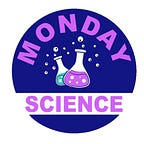Episode 13: Dr Dereck Gondongwe Answering Your Questions about How to Interpret COVID-19 Information and Pharmacy
Episode Introduction Written by Francesca Jacklin and Summary by Dagny Reese
In this episode of Monday Science, Dr Dereck Gondongwe, our brilliant guest from episodes 9 & 10, comes back to answer your questions on how to interpret COVID-19 information and his thoughts on how pharmacists can be best used in healthcare. Dr Dereck Gondongwe is currently the lead pharmacist and senior critical care pharmacist at the University College London Hospitals (UCLH). Previously he talked about his work within the NHS as a pharmacist and his experiences working within the NHS during the COVID-19 pandemic.
Dr Bahijja Raimi-Abraham: [When considering recent retractions of scientific papers], what should the general public keep in mind, or what questions should they be asking when being given medical or scientific findings regarding COVID-19?
Dr Dereck Gondongwe: “In general, with anything new information [or topic] there is usually a volume increase in people saying ‘I know this’. What tends to happen in the heat of the moment, is people tend to lose their critical analysis skills. With COVID-19, [this was seen] with less academic rigour regarding information coming through .”
“The General public should keep in mind, that healthcare professionals and experts have to decipher the information and [communicate] their best possible understanding, which can be a big challenge. This is where groups like the European Society of Intensive Care Medicine, or Clinical Pharmacists Association, really come into play. […]”
“[Some healthcare professionals] are very excited with now information, others are more hesitant, and others continually review and make fact-based decisions on new data.The challenge is really to make sure that we [effectively] question the information that is published. […] Gathering information from a wide range of sources, people need to try listening to different channels or sources, to piece together a better image of the situation. Trust that the medical and scientific medication are giving answers based on their upstanding at the time, [but that the information will change overtime].”
“An example viewers may be familiar with is the usage of Dexamethasone to treat patients with COVID-19. The usage of steroids to treat lung conditions has often been a topic of controversy, and it is largely based on evidence that high doses can be harmful due to immunosuppression [..]. While treating COVID-19, a relatively low dosage was used. There are often times where medicine does not have an exact answer, [and that answer] will evolve over time as new information becomes available.
“[Overall, I think its important] to stay as informed as you can be and to ask health care professionals ‘what is informing your decision, where is this information coming from?’ […]”
Dr Bahijja Raimi-Abraham: To what extent does human intuition come into deciding medical treatment? Is treatment solely based off of percentages and chances of success?
Dr Dereck Gondongwe: “The different roles of medics and pharmacists [are important to consider when answering this]. So, ideally medics diagnose the conditions, and pharmacists would treat it. The medics I am familiar with have an extensive amount of training to recognise certain conditions and understand them, and then to diagnose. [What the challenge here] mainly is pattern recognition. […] For example, it is easy to notice a cough, but less easy to determine the cause. Pharmacists don’t really use intuition in training. [For example], if a patient has diabetes, they will automatically go ‘well, what would be best treatment be [for this type] of diabetes?’.”
“The first part of Pharma training really comes down to “what if drug A doesn’t work, should I add drug B?”, “what is B causes this side effect?”, “what if they have [multiple conditions]”, “what if Drug A and Drug B could interact?”. Our training is very much designed to encourage usage of critical thinking. Personal experience and expertise is also important, and there is some element of professional preference [based on this experience].
Dr Bahijja Raimi-Abraham: Should there be more usage of pharmacists when treating patients? Where should pharmacists be used more in clinical settings?
Should pharmacists be used more? [Definitely] yes. Clinical pharmacists have come a long way from when they have initially graduated, [we] observe patients, treat them, observing their progress. As the population ages, and new conditions emerge, like COVID-19, doctors need to focus more on the complex therapies required [for treatment]. [Pharmacists can really help in these situations], especially with minor ailments. Instead of going in to see a doctor with a minor illness, they can go and see a pharmacist. The doctors can then focus on the more complicated patients, who need more attention, diagnostics and treatment.
[In reference to a previous viewers perception of pharmacists from a television program], it is unfortunate that many people have limited view of a pharmacist’s role. Pharmacists should be used a lot more.
Thank you again to Dr Dereck Gondongwe for his fantastic insights into the importance of critical analysis, the role of the pharmacist and representation of pharmacists in the media.
Interested in hearing more? Please check out the Monday Science podcast on Spotify, Apple Podcasts, Google Podcasts, and Stitcher.
If you have any questions you’d like to be answered by Dr Bahijja, or can think of any other examples of pharmacists in the media/pop-culture, feel free to send them in via the website chat, or email MondayScience2020@gmail.com. You can also send us your questions as a voice message via https://anchor.fm/mondayscience/message. We love to hear your thoughts!
Were you confused about any of the terms used in this summary?
Dexamethasone — A corticosteroid medication used to treat a wide variety of conditions.
Steroid — Active compounds with a vide variety of purposes, such as hormones within the body (e.g. Estrogens), medications (like Dexamethasone), etc.
Image Credits:
Photo of Pharmacist by Kendall.
Photo of Medical Team in Hospital Setting by Luis Melendez.
